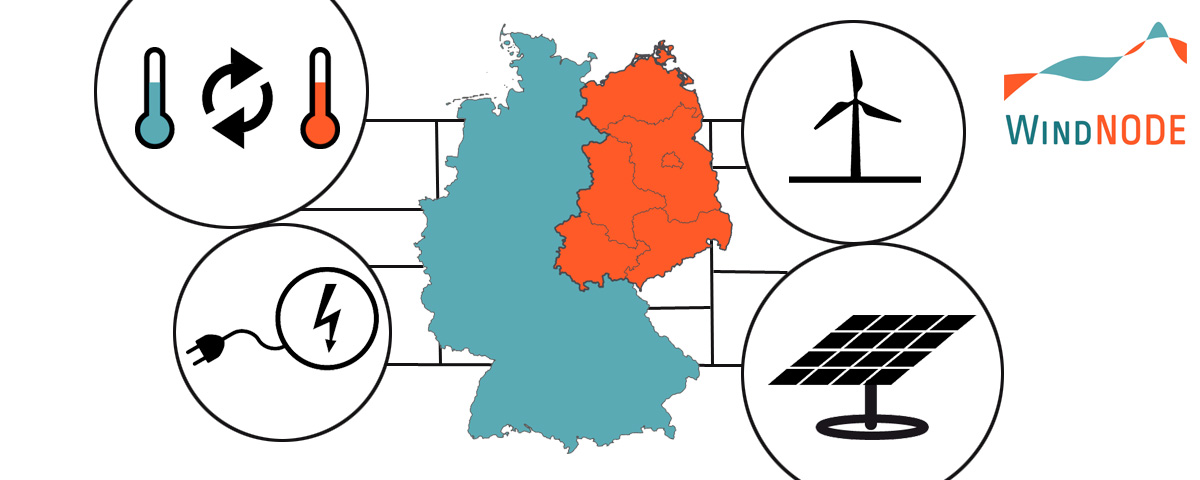
WindNODE – Showcase Intelligent Energy in Northeastern Germany
12. January 2017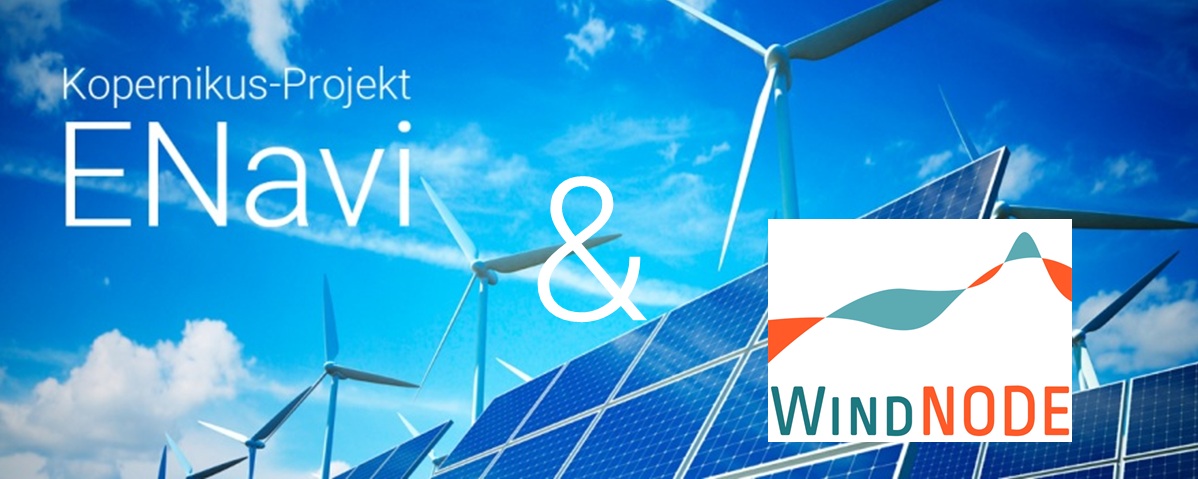
WindNODE and ENavi start
17. January 2017Kopernikus Project ENavi
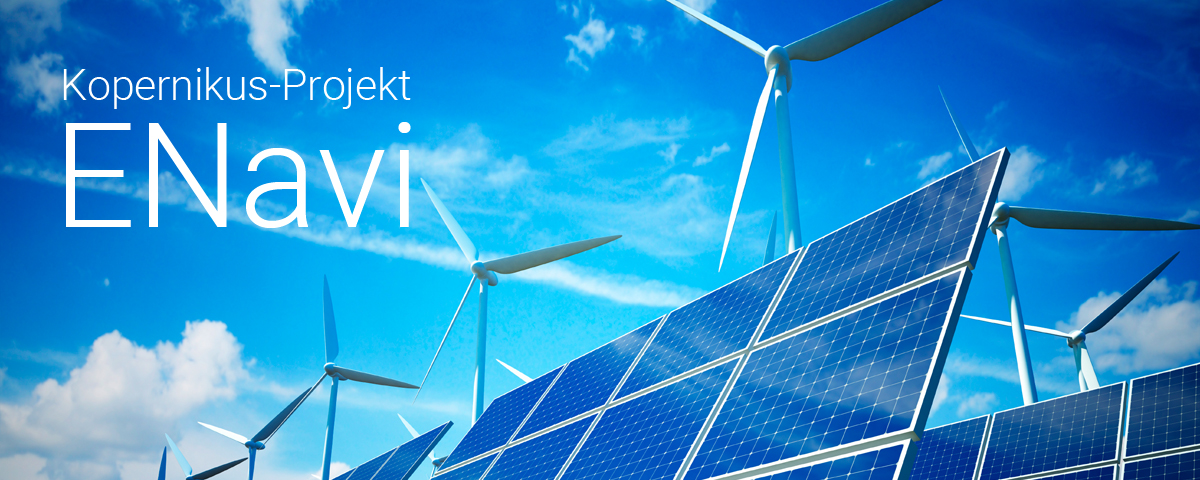
In the Kopernikus project ENavi, license-free, publicly available simulation tools were developed and used, with the help of which the regional energy system transformation with its individual sectors electricity, heat and mobility can be designed in a participatory manner.
For several years, there has been a trend towards more transparency in energy system simulation and towards opening up simulations for sharing. The Kopernikus project ENavi also aimed at more transparency and should serve the "stakeholder empowerment". The interactive web tools developed in this project are therefore called StEmp tools (=stakeholder empowerment tools). In this way, local actors in particular should be enabled to better understand measures and effects and thus to let them participate (pro)actively in the dialog and develop options for action themselves. Compared to previously existing alternatives, the web tools developed in ENavi can be used to present on-site consumption and the provision of energy in a more understandable way.
Transdisciplinary solutions for supply security
In concrete terms, this means that the two web tools developed in this project should help to assess the effects and side effects of economic or political measures in advance. This should enable the energy system to guarantee security of supply, economic efficiency, and environmental and climate compatibility. In the research project, transdisciplinary solutions were developed for this purpose and then tested under real conditions in model regions. In this way, the web tools can be used regionally as a basis for discussion among the various local actors.
Participatory involvement of local actors
During the development of the web tools within the Kopernikus project ENavi, there was a close exchange with the 64 partners of the ENavi association during the whole project period. After the development of the theoretical basis, a needs analysis and the creation of two concepts for two different tools, they were developed together with the local partners. Feedback from local stakeholders during workshops enabled the tools to be further developed and adapted precisely to their needs.
Technological and economic solutions for the transformation of the energy system
ENavi was one of four projects funded by the Kopernikus initiative of the German Federal Ministry of Education and Research (BMBF). Over a total period of ten years, organizations from science, industry and civil society worked together in these projects to develop technological and economic solutions for restructuring the energy system.
Project duration: 15.10.2016 - 14.10.2019
© Photo: TAFE SA TONSLEY, Licence CC BY 2.0 , cropped
For several years, there has been a trend towards more transparency in energy system simulation and towards opening up simulations for sharing. The Kopernikus project ENavi also aimed at more transparency and should serve the "stakeholder empowerment". The interactive web tools developed in this project are therefore called StEmp tools (=stakeholder empowerment tools). In this way, local actors in particular should be enabled to better understand measures and effects and thus to let them participate (pro)actively in the dialog and develop options for action themselves. Compared to previously existing alternatives, the web tools developed in ENavi can be used to present on-site consumption and the provision of energy in a more understandable way.
Transdisciplinary solutions for supply security
In concrete terms, this means that the two web tools developed in this project should help to assess the effects and side effects of economic or political measures in advance. This should enable the energy system to guarantee security of supply, economic efficiency, and environmental and climate compatibility. In the research project, transdisciplinary solutions were developed for this purpose and then tested under real conditions in model regions. In this way, the web tools can be used regionally as a basis for discussion among the various local actors.
Participatory involvement of local actors
During the development of the web tools within the Kopernikus project ENavi, there was a close exchange with the 64 partners of the ENavi association during the whole project period. After the development of the theoretical basis, a needs analysis and the creation of two concepts for two different tools, they were developed together with the local partners. Feedback from local stakeholders during workshops enabled the tools to be further developed and adapted precisely to their needs.
Technological and economic solutions for the transformation of the energy system
ENavi was one of four projects funded by the Kopernikus initiative of the German Federal Ministry of Education and Research (BMBF). Over a total period of ten years, organizations from science, industry and civil society worked together in these projects to develop technological and economic solutions for restructuring the energy system.
Project duration: 15.10.2016 - 14.10.2019
The Kopernikus Projects ENavi involved 64 partners from industry, research, and society who work together on different parts of the project. Cooperation with other entities in the RLI subproject is described in the final report.
© Photo: TAFE SA TONSLEY, Licence CC BY 2.0 , cropped
RLI was responsible for the following tasks within the project:
- Developing public-domain simulation tools for engaging different parties involved in the process (Stakeholder Empowerment Tools*)
- Compiling the theoretic foundation
- Needs assessment in dialog with the involved parties
- Analysis of strengths and weaknesses of existing tools
- Developing example tools
- Tests and assessments
- Collaboration with “Reality Labs”
The Kopernikus Projects ENavi involved 64 partners from industry, research, and society who work together on different parts of the project. Cooperation with other entities in the RLI subproject is described in the final report.
ENavi was one of four projects within the funding initiative “Kopernikus“ by the German Federal Ministry of Education and Research (BMBF).
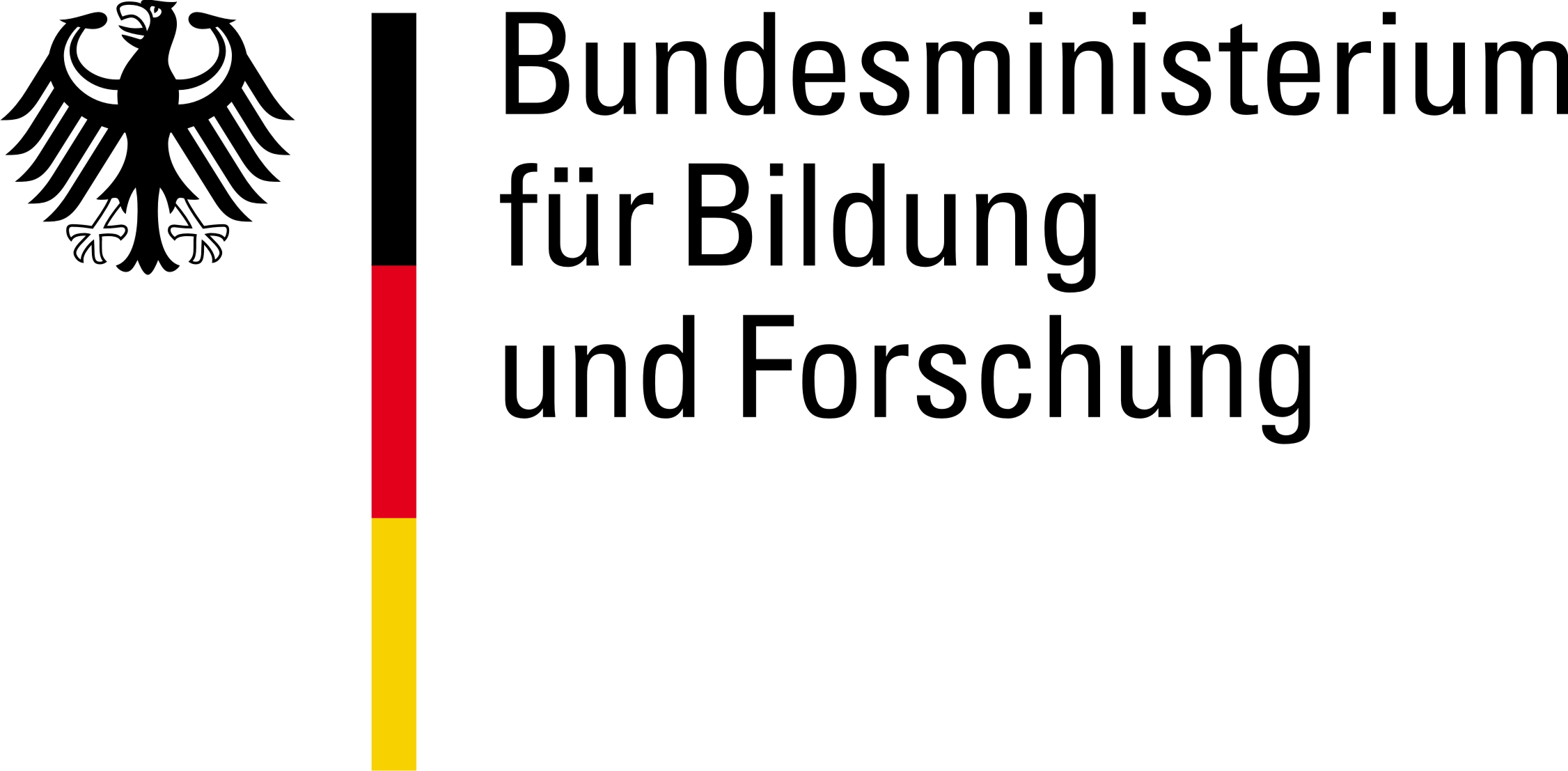
Represented by:
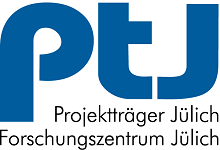
Research at RLI was supported by the Reiner Lemoine Foundation.

Represented by:

Research at RLI was supported by the Reiner Lemoine Foundation.
These are the results of the research project:
- Design and implementation of two tools for the two model regions:
- Development of a StEmp-Tools to help find cost-effective and environmentally friendly heating options for homes and neighborhoods for the Northwest Mecklenburg region - the tool is publicly available, extensively documented, and can still be used
- Development of a StEmp-Tools to calculate energy scenarios for the Anhalt-Bitterfeld-Wittenberg region and compare them to the status quo, and to illustrate land uses and conflicts in the region - the tool is publicly available, extensively documented, and can continue to be used
- StEmp tools can be used as a discussion tool for various local actors, achieving their greatest impact when used at a time when there is still real freedom of decision and design
- Detailed results of this project have been written down in a master's thesis, papers and the final report







